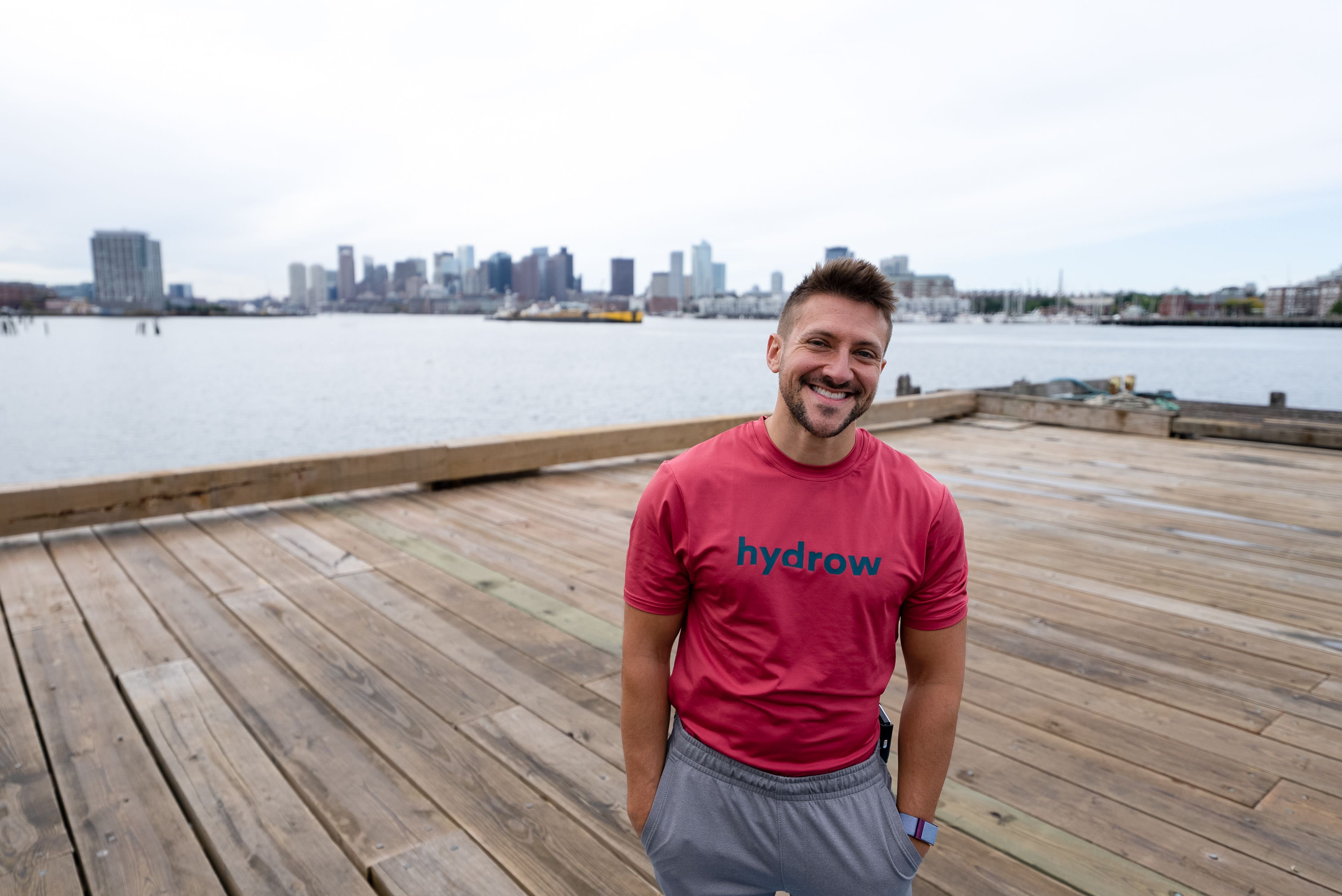Nutrition Tips for the New Year

January is filled with lots of noise about what workout or diet you should be following. At Hydrow, we believe that nutrition and exercise can help you feel your best. That’s why we talked to Hydrow Yoga Teacher and Registered Dietitian, Owen Henn, about how to navigate nutrition in the New Year.
Enjoy your food and ditch the guilt
One of my favorite things in this whole wide world is the smell of sticky buns in the oven. I will always associate those warm, gooey creations with family time and tradition. I’m betting that there’s some food that invokes the same feeling of joyful tradition in your life. It may also be the case that this food isn’t particularly nutritious… Unfortunately, the way we talk about food can be very charged and judgmental. Often, we do this instead of actually enjoying whatever we’re eating. What, then, is even the point? There are so many reasons to eat something apart from the nutrition it provides. As a dietitian, I know all the ways in which sticky buns are nutritionally bereft. But they nourish me in a different way. Often, our foods are connected to memory, tradition, family, and more. This year, see how it feels to truly enjoy your favorite foods.
Eat slowly to improve your digestion
There’s a Japanese expression from Okinawa—one of the healthiest places on the planet—that translates to “eat until you are 80% full.” From a biological perspective, this allows time for receptors in our stomach and GI tract to transmit the feeling of fullness to our brain. We’ve all experienced eating beyond fullness, and that can happen due to a lag time for the signal to reach our brain. If we stop eating when we feel 80% full, chances are we’re actually full and just don’t know it yet.
Another way to improve digestion is to chew more slowly, as it helps break food into smaller pieces. Our intestinal walls have microvilli, little finger-like projections that grab onto ingested food and extract nutrients. The smaller the pieces, the more nutrition we can get from the same food just by taking the time to chew a bit longer.
Lastly, taking deeper, fuller breaths can aid in digestion. Your breath is tied to the nervous system. We know what hyperventilation is, which is typically associated with activation of the sympathetic nervous system, but if we breathe more slowly, we can activate the parasympathetic nervous system, which is associated with “resting and digesting”. Essentially, it directs more blood flow from the extremities toward the body, resulting in better digestion.
Pair sugary foods with foods high in protein and fiber
We’re descending into nutrition nerd territory, but I promise to keep it practical. How often have you eaten something sugary, like a baked good or some leftover Halloween candy, only to feel totally exhausted an hour or two later? This may be in part due to your blood sugar.
When we eat something high in sugar, it gets rapidly broken down into glucose and enters our blood stream to be distributed throughout the body as energy. To deal with this spike in blood sugar, our body releases a hormone called insulin which helps to move glucose out of our blood and into our cells. Sometimes, this rapid clearance results in a low blood sugar, leaving us cranky and lethargic and (ironically) hungrier!
Here's what to do about it. Try to avoid eating sugary foods on their own – instead, pair them with foods high in protein and fiber. Protein and fiber both act to slow digestion and blunt the blood sugar response, meaning your body won’t be scrambling to deal with such a big spike. By doing this, you might be able to avoid the energy crash and the overeating that usually follow.
Eat your vegetables first
I might sound like an overbearing parent here, but there really is value in saving your dessert until you’ve finished all your vegetables. As we just learned, fiber slows down our digestion and can help reduce the impact of sugary foods on blood sugar. Veggies are a great source of fiber and add bulk, contributing to the internal feeling of fullness. It may be the case that by starting your meal with veggies, you will naturally eat less because you notice yourself getting full more quickly.
I prefer strategies like this, because it doesn’t mean you have to go without your favorite dessert dishes or change in any way what you are choosing to eat. We are simply applying a bit of nuance to the order in which you eat your foods.
Understand your environmental and social triggers
This last one can be tricky, but it’s so important. We can go into the new year with the best intentions and all the right knowledge, but find ourselves subject to outside forces (AKA, other people!). How often have you felt pressured to eat more than you might otherwise in order to please a gracious host or a loving family member? Have you ever felt swept up in the tide of those around you, seemingly unable to make your own decisions about what or how much you eat?
If so, this is the year to notice when those situations come up. Take a deep breath. If you want seconds, thirds, or any deliciously tempting thing, great! Go for it. But make that decision yourself. We might imagine that by turning down food we are offending someone else. In reality, the people who care about us would want us to be honest and advocate for our own needs.
The new year is a time to reflect on what’s wonderful about your life, as well as what things you might want to change. Improving your nutrition and your relationship with food can be profoundly transformational. With every bite of food there exists an opportunity to nourish yourself and fuel the life you want to live. This year, try to truly enjoy your favorite foods, eat in a way that supports your digestion and energy, and take agency with your food choices.


